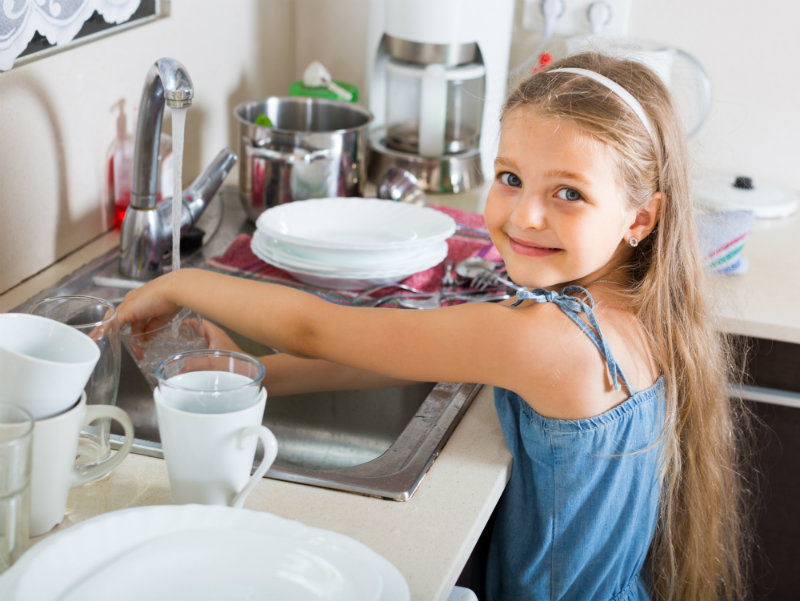As parents, we want to raise our children to be responsible. Responsibility is crucial in work and relationships not only when they are young, but even more as they grow into adulthood. Merriam-Webster online defines the word “responsible” as “able to answer for one’s conduct and obligations,” or “able to choose for oneself between right and wrong.” In order for children to understand what it means to be responsible, they must understand there are consequences for things whether right or wrong, good or bad, and they must eventually answer for what they do and say. How can we lovingly teach them about being responsible in age-appropriate and effective ways?
Not a burden
As adults dealing with responsibilities at home, work, or school that may be less than pleasant, it is easy to see being responsible as an added stress and weight. Being responsible doesn’t have to be a struggle or a burden! For a child, even small responsibilities like setting the table or letting the dog out gives them joy as they help with the house, and get a small taste of what it is like to be a grownup. Make sure your children get started on the path to responsibility with a mindset of growth and learning, rather than a mindset of misery and boredom. Let them know you are giving them responsibilities because they are getting so big, and they are old enough to have the power to help around the house with age appropriate chores. Show them being responsible is empowering, and the way they handle these responsibilities has consequences. If they wash the dishes well, now that mom and dad don’t have to wash dishes anymore, they may get more playtime together. If they do not do a good job with their chores, they may have to spend time redoing them instead of doing something they enjoy. At the end of the day, make sure your children see being responsible as a powerful, adult-like thing, rather than an irritation.
Accept the Mess
Sometimes, when you give a child a chore for the first time, it may not be done perfectly. Maybe the clothes do not get folded or hung up perfectly, there are missed spots on the carpet the vacuum did not reach, or the table is not fully wiped clean. Rather than stressing over these little things, or getting upset with the child over their mistakes, assess whether they gave it their best effort. When they are learning new chores around the house, it is only natural there will be a learning curve, and that is alright! Congratulate them on a job (at least mostly) well done, and consider taking the time to teach them an easier or more efficient way next time. It is all a part of the process.
Talk It Out
Talk with your children about how their decisions are affecting their lives. Use some personal examples, such as “Dad did not set up the coffee pot on Sunday night, so he didn’t get his coffee before work on Monday!” and make it an open forum. Small or big, it is valuable for them to be able to hear you identify what consequences certain actions have, and for them to be able to connect some actions with consequences on their own. These discussions can help children better identify what lead to a certain consequence when needed, and will help them see what consequences their actions may bring ahead of time.
If you are wondering what some age-appropriate responsibilities might be for your child, this list of age-appropriate chores for 2 years old all the way up to 18 may be helpful in identifying what your child is ready for. Helping around the house is a great way to start children and teens on the path to living responsibly, while still within the safe space of your home. The world needs more adults who are able to take responsibility, and developing that character trait starts in your home.








